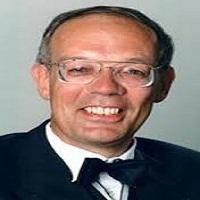
Bert Sakmann MD, PhD
Biochemistry and Molecular Genetics, Biotechnology, Healthcare Technology
Jupiter, Florida, United States of America
Connect with the speaker?
Dr. Bert Sakmann, M.D., Ph.D., Max Planck Florida Institute for Neuroscience’s (MPFI) Inaugural Scientific Director and Research Group Leader and Nobel laureate, was among the outstanding honorees of the 2015 Ellis Island Medal of Honor, awarded May 9 in New York City. Presented by the National Ethnic Coalition of Organizations (NECO), the International Ellis Island Medal of Honor is given to individuals whose professional, personal or philanthropic contributions benefit our global community. Dr. Sakmann was recognized by NECO for his scientific contributions as a global leader in neuroscience research.
Dr. Sakmann was awarded the Nobel Prize in Medicine in 1991, along with physicist Erwin Neher, for discoveries on single ion channels in cells, enabled by their invention of the patch-clamp technique. This ground-breaking technical achievement made it possible to examine, in real time, the operation of individual ion channel proteins. Sakmann and Neher examined a broad range of cellular functions, eventually discovering the role that ion channels play in diseases such as diabetes, cystic fibrosis, several cardiovascular diseases and certain neuromuscular disorders. This technique forged new paths in the study of membrane physiology and the creation of novel therapeutics targeting ion channels. In fact, the Nobel Prize committee credited the two scientists with revolutionizing modern biology.
Dr. Sakmann’s research group at MPFI is conducting a program dedicated to creating a three-dimensional map of the normal brain. They are labeling the different cell types with specific fluorescent markers and then imaging and quantifying the neuron distributions. This work will lay the foundation for future studies on brain degenerative diseases, such as Alzheimer’s. The research will not only help further our basic understanding of the degenerative disease process, but could also serve as a platform to measure the beneficial changes caused by novel therapeutic approaches such as new drugs and stem cell therapies.
Dr. Sakmann was awarded the Nobel Prize in Medicine in 1991, along with physicist Erwin Neher, for discoveries on single ion channels in cells, enabled by their invention of the patch-clamp technique. This ground-breaking technical achievement made it possible to examine, in real time, the operation of individual ion channel proteins. Sakmann and Neher examined a broad range of cellular functions, eventually discovering the role that ion channels play in diseases such as diabetes, cystic fibrosis, several cardiovascular diseases and certain neuromuscular disorders. This technique forged new paths in the study of membrane physiology and the creation of novel therapeutics targeting ion channels. In fact, the Nobel Prize committee credited the two scientists with revolutionizing modern biology.
Dr. Sakmann’s research group at MPFI is conducting a program dedicated to creating a three-dimensional map of the normal brain. They are labeling the different cell types with specific fluorescent markers and then imaging and quantifying the neuron distributions. This work will lay the foundation for future studies on brain degenerative diseases, such as Alzheimer’s. The research will not only help further our basic understanding of the degenerative disease process, but could also serve as a platform to measure the beneficial changes caused by novel therapeutic approaches such as new drugs and stem cell therapies.

